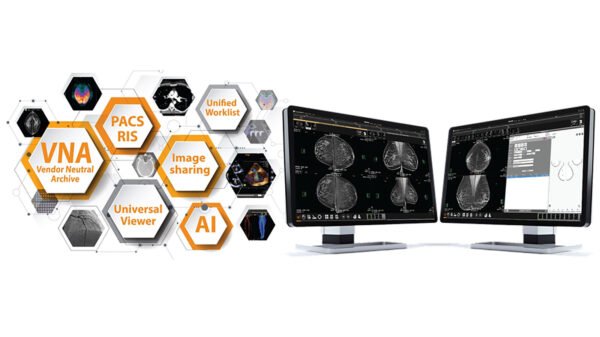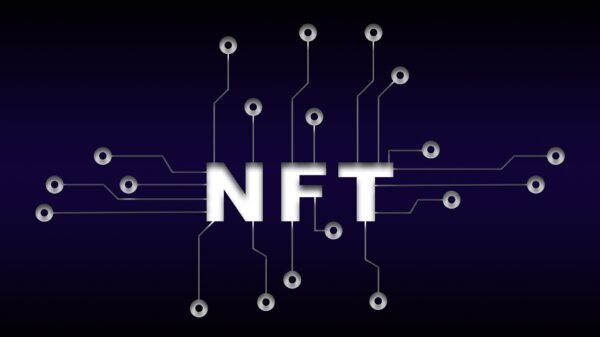Understanding Artificial Intelligence
Artificial Intelligence (AI) represents a groundbreaking advancement in technology, characterized by the capability of a computer or a computer-controlled robot to execute tasks that are typically attributed to human intelligence. At its core, AI encompasses the development of algorithms and systems designed to mimic cognitive functions such as reasoning, problem-solving, and learning from experience. These capabilities allow AI to perform a wide range of tasks with efficiency and precision.
One of the fundamental aspects of AI is its ability to learn from experience. This process, known as machine learning, enables AI systems to improve their performance over time based on the data they process. For instance, AI can analyze vast datasets to identify patterns, make predictions, and offer insights that would be challenging for humans to discern manually. This capacity for continuous improvement is a key factor in the growing adoption of AI across various industries.
AI’s applications are diverse and far-reaching. In the field of medical diagnosis, AI systems assist healthcare professionals by analyzing medical records, imaging studies, and genetic information to provide accurate diagnoses and treatment recommendations. Similarly, search engines employ AI algorithms to deliver highly relevant search results, enhancing the user experience. Chatbots, powered by AI, offer customer support and engagement by understanding and responding to user queries in real-time, significantly improving service efficiency.
Beyond these sectors, AI is also making strides in fields like finance, where it aids in fraud detection and personalized financial planning. In transportation, AI technologies contribute to the development of autonomous vehicles, promising to revolutionize how we travel. The entertainment industry leverages AI for content recommendation, ensuring users receive personalized viewing experiences.
Overall, artificial intelligence stands as a testament to the incredible potential of technology to augment human capabilities. Its ability to perform complex tasks with speed and accuracy has positioned AI as a pivotal tool in driving innovation and efficiency across numerous domains.
Types and Mechanisms of Artificial Intelligence
Artificial Intelligence (AI) can be broadly classified into two main categories: weak AI and strong AI, also known as artificial general intelligence (AGI). Weak AI, or narrow AI, refers to systems that are designed to perform specific tasks without possessing genuine understanding or consciousness. These systems are prevalent in applications such as virtual assistants, recommendation engines, and image recognition tools. They excel in their designated functions but do not possess the ability to perform outside their programmed scope.
On the other hand, strong AI represents a hypothetical benchmark where AI systems achieve human-like intelligence and adaptability. This level of AI would be capable of performing any intellectual task that a human can, including reasoning, problem-solving, and understanding nuanced language. While strong AI remains a theoretical concept at present, it continues to be a significant area of research and development.
AI can also be categorized into four main types based on their functionalities: reactive machines, limited memory, theory of mind, and self-awareness. Reactive machines, the simplest form, operate solely on current inputs without storing past information. Limited memory systems, which are more advanced, can retain previous data and use it to inform future decisions. The theory of mind AI is an emerging area focused on creating systems that understand human emotions and mental states, aiming for more interactive and empathetic user experiences. The most advanced type, self-awareness AI, would possess consciousness and self-awareness, allowing it to understand its existence and make decisions accordingly, although this remains speculative.
AI systems work by employing algorithms and large datasets to recognize patterns, make predictions, and adapt to new information. Machine learning, a primary approach within AI, involves training models on data to improve their performance over time. This process includes supervised learning, where models learn from labeled data, and unsupervised learning, where they identify patterns without predefined labels. Additionally, reinforcement learning teaches AI systems to make decisions through trial and error, optimizing for desired outcomes. These mechanisms enable AI to evolve continuously, enhancing its capabilities and applications across various domains.
Applications and Impacts of AI
Artificial intelligence (AI) has become a transformative force across various industries, driving innovation and efficiency. In the healthcare sector, AI significantly improves medical diagnoses through advanced image recognition algorithms, which assist radiologists in identifying anomalies in medical imaging. Furthermore, AI facilitates drug research and development by analyzing vast datasets to predict potential drug candidates, thereby accelerating the discovery process. It also plays a crucial role in managing healthcare data, enabling seamless integration and analysis of patient records, which enhances decision-making and operational efficiency. Additionally, AI automates patient experiences by deploying chatbots and virtual assistants to handle routine inquiries and streamline appointment scheduling.
In the retail industry, AI enhances customer experience by leveraging user personalization and product recommendations. Machine learning algorithms analyze consumer behavior and preferences to deliver tailored shopping experiences. Retailers utilize AI-driven marketing automation tools to optimize campaigns, predict trends, and manage inventory more effectively. These tools enable businesses to engage customers with relevant content, ultimately driving sales and customer satisfaction.
The benefits of AI extend to automating repetitive tasks, allowing human workers to focus on more complex and creative endeavors. AI systems excel in solving intricate problems that are beyond human capability, and they significantly reduce human error through consistent and precise execution. However, the integration of AI also presents challenges. Job displacement is a significant concern as automation replaces certain roles, necessitating workforce reskilling and adaptation. Moreover, AI systems can inadvertently perpetuate bias and discrimination if not carefully monitored and designed, reflecting inherent biases present in training data.
Understanding both the potential and pitfalls of AI is essential for harnessing its full capabilities responsibly. By addressing these challenges and leveraging AI’s strengths, industries can achieve substantial advancements and improvements in their operations and services.
Ethical Considerations and the Future of AI
The rapid advancement of artificial intelligence (AI) technology brings with it a host of ethical considerations that must be addressed to ensure responsible development and usage. One of the primary concerns is the potential for AI systems to infringe on fundamental rights and freedoms. To mitigate these risks, lawmakers around the world are actively working on regulatory frameworks. For instance, the European Union has introduced the Artificial Intelligence Act, which aims to establish comprehensive guidelines to ensure AI systems are safe, transparent, and respect human rights.
Ethical AI development involves creating systems that are not only effective but also fair and unbiased. This includes efforts to prevent algorithmic discrimination and to ensure that AI decision-making processes are explainable and accountable. Stakeholders in the AI ecosystem, including developers, businesses, and policymakers, must collaborate to establish ethical standards that guide the deployment of AI technologies in a manner that benefits society as a whole.
Looking to the future, AI has the potential to transform various industries significantly. In healthcare, AI can enhance diagnostic accuracy, personalize treatment plans, and optimize the management of medical resources. In the financial sector, AI-driven algorithms can improve risk management, detect fraudulent activities, and provide personalized financial advice. The education industry can also benefit from AI through the customization of learning experiences and the automation of administrative tasks.
However, along with these promising opportunities, there are associated challenges and risks that need to be addressed. Issues such as data privacy, cybersecurity, and the potential for job displacement due to automation are critical concerns that must be managed to maximize the benefits of AI. Ensuring that AI systems are developed and used ethically will be crucial in navigating these challenges and unlocking the full potential of artificial intelligence in society.







































































Pingback: The Best Apple Air Tablet Charger for Hassle-Free Power